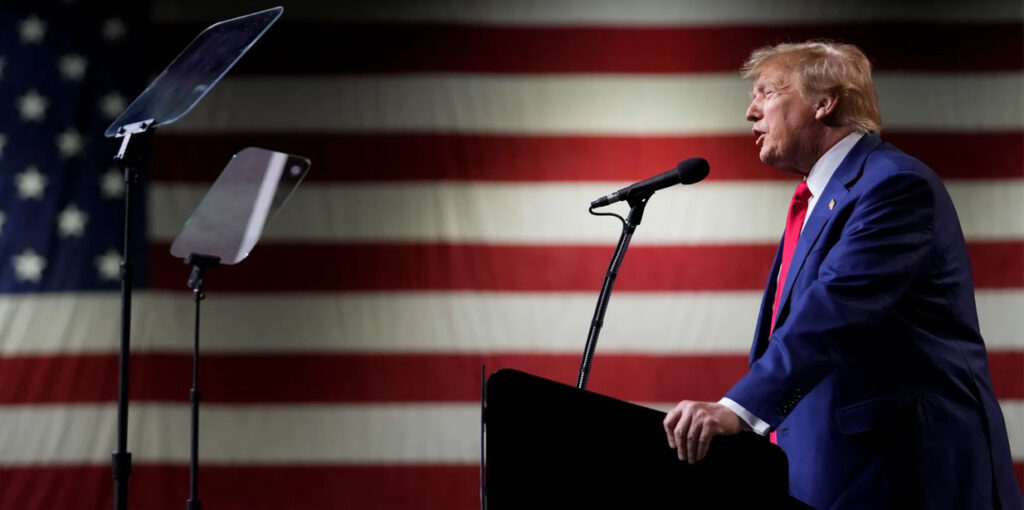The recent decisions in Maine and Colorado to remove Trump from the presidential primary ballots, citing the Constitution’s insurrection clause, stand as stark examples of blatant partisan interference with elections. These actions, taken unilaterally by a Democratic secretary of state, and a Democrat appointed state supreme court have ignited fierce debates about the ability for the opposition to determine a political figure’s eligibility for office.
Should one’s political opponents have the reach to ban a legitimate candidate from an election? In this case, Trump has been labeled an “insurrectionist” without having been convicted of any crime. Can he be labeled an “insurrectionist” just because the term has become popular in mainstream media?
In Maine, Secretary of State Shenna Bellows, a Democrat, made the unprecedented move to disqualify Trump from the ballot. Her justification was devoid of a preceding legal conviction for insurrection, raises critical questions about her motivations and the influence of political bias in such significant rulings.
Similarly, in Colorado, the Supreme Court’s decision to remove Trump from the ballot, also citing the 14th Amendment, further exemplifies the partisan mis-use of legal provisions to sideline a political adversary. The court’s ruling, led by justices appointed by Democrats, adds to the perception of a politically biased judicial process. These actions starkly contrast with the situation in Michigan, where the Supreme Court, following a more procedural approach, allowed Trump to remain on the ballot, and California which declined to remove Trump from the ballot because it (rightfully) just was not appropriate.
And remember these are Democrats disqualifying candidates for the Republican primary.
The label of ‘insurrectionist’ applied to Trump, absent a legal conviction, suggests a dangerous precedent where political figures can be disqualified based on partisan intentional mis-interpretations rather than due process and judicial findings. This trend raises serious concerns about the integrity of the electoral process and the impartial application of the law.
As the legal battles over Trump’s eligibility continue, the role of the U.S. Supreme Court becomes increasingly important. With conflicting decisions at the state level, the need for an unbiased, legal resolution from the nation’s highest court is evident. The Supreme Court’s potential involvement in these cases offers a chance to establish clearer guidelines for the application of the 14th Amendment and to address the issue of state versus federal authority in determining eligibility for office.
As an actual impact on 2024 elections, this is moot. Trump has a substantial lead in the polls and the loss of these two states will not affect his ability to win in the Republican primaries. But if the precedent stands, then it leads to a situation where the party in power can limit candidates for the opposing side.
Much like Putin as done with opposition leader Navalny, and more recently with Yekaterina Duntsova, an anti-war candidate. Navalny has another 19 years to serve, Duntsova is just restricted from running (but Putin will find a reason to throw her in jail, I’m sure).
Are we THAT nation yet?
